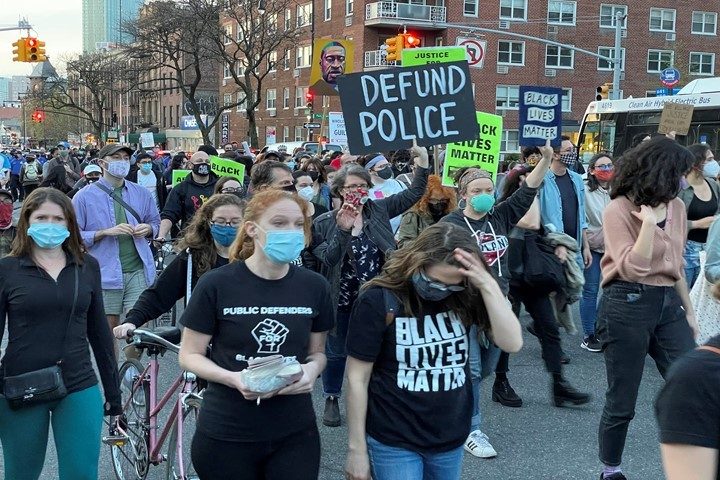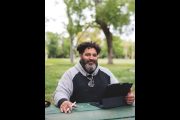
In the aftermath of Tuesday’s conviction of Minneapolis police officer Derek Chauvin for the killing of George Floyd, anti-police rhetoric has reached a fever pitch. A new Rasmussen Reports survey, released this week, has found that 63 percent of American adults are concerned that this “growing criticism of America’s police will lead to a shortage of police officers and reduce public safety in the community where they live.”
Thirty-seven percent told Rasmussen pollsters that they are “very concerned.”
They have good reason to be. During the 1919 Boston police strike, citizens there experienced a wave of hooliganism, strong-armed robberies, smashed store windows, and criminal activity, when the criminal element of the city realized there were was little to no police presence.
According to the Rasmussen poll, only about 10 percent expressed no concern at all about the negative effects on public safety of anti-police rhetoric.
The poll questioned 1,000 likely U.S. voters on April 13 and 14, asking, “How concerned are you that the growing criticism of America’s police will lead to a shortage of police officers and reduce public safety in the community where you live?”
U.S. Representative Rashida Tlaib (D-Mich.) said last week, “Policing in our country is inherently and intentionally racist. I am done with those who condone government-funded murder. No more policing, incarceration, and militarization. It can’t be reformed.” Despite such vitriolic rhetoric, which is not unique to radicals such as Tlaib, a majority of black voters — 52 percent — also said that they are very concerned about the anti-police rhetoric.
Senator John Kennedy (R-La.) challenged Tlaib’s remarks during an interview with Fox News. “No fair-minded person believes that cops, many of whom are racial minorities, get up every day and go to work hoping for the opportunity to be able to hurt someone, including but not limited to people of color. That’s nonsense. But the ‘woke-a-reestas’ like the congresswoman, they really believe that. They really do hate cops, just because they’re cops. They really do want to defund the police.”
Kennedy added, “The ‘woke-a’reestas’ really do believe that when a cop shoots a criminal, it is always — every single time — the cop’s fault, but when a criminal shoots a cop, it is always — every single time — the gun’s fault. These folks really do have contempt for America.”
In a way, the hatred of police, as expressed by Tlaib, is based on a radical leftist view of the purpose of government. Whereas government’s purpose, according to Scripture and the Founders, is to protect our lives, our liberty, and our property, leftists see government as a tool to redistribute wealth and impose their radical vision. Obviously, if there were no police and no incarceration, then there would be no way for a person to defend his life, liberty, and property, except to defend it himself.
At the same time that radicals such as Tlaib wish to end policing and incarceration, they also call for more and more restrictions on the private ownership of firearms. With no police and no guns in the hands of private citizens, life would become intolerable, and the private economy would deteriorate. We can already see this happening in major cities of America. Who wants to open a business in, or even live in, a community in which life, liberty, and property is subject to frequent attacks by the mob?
Actually, those who call for the abolition of local police forces are not really calling for the abolition of all law-enforcement agents. What they are calling for is the nationalization of police. Local police departments are often harassed by the U.S. Department of Justice now. The end-game for these anti-police radicals is for all policing to be in the hands of the federal government.
Nationalization of police is always the goal of totalitarians. One of the first actions taken by National Socialist dictator Adolf Hitler was to nationalize the police forces of Germany. Anyone who has ever heard of Hitler’s Gestapo can understand that nationalization of police does not lead to less abuse of power by police, but more.
Certainly, any time a person is handed power and authority, as is the case with local police, there is a danger of abuse. However, the alternative to local police is not desirable, and procedures are in place to weed out the tiny minority of bad cops.
Hopefully, those who advocate removing police protection from the productive and law-abiding segment of society will be repudiated at the polls, as the Rasmussen poll indicates is a strong possibility.



